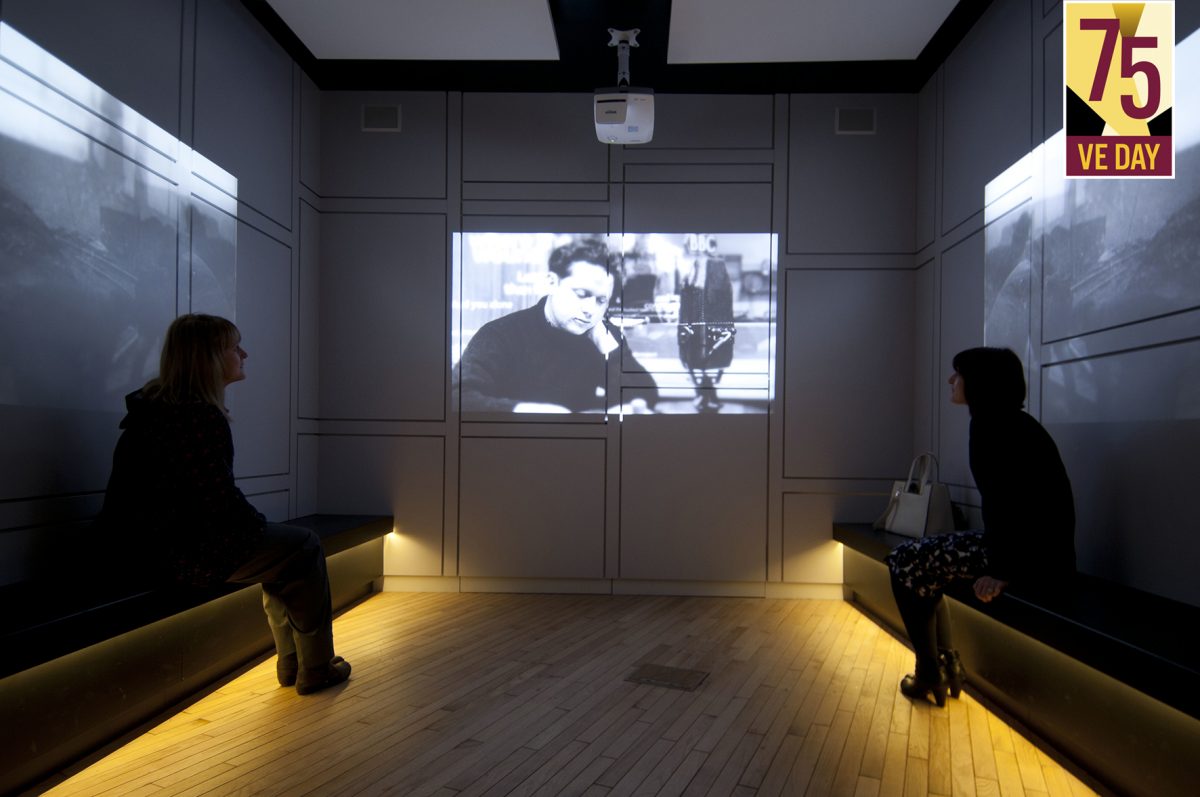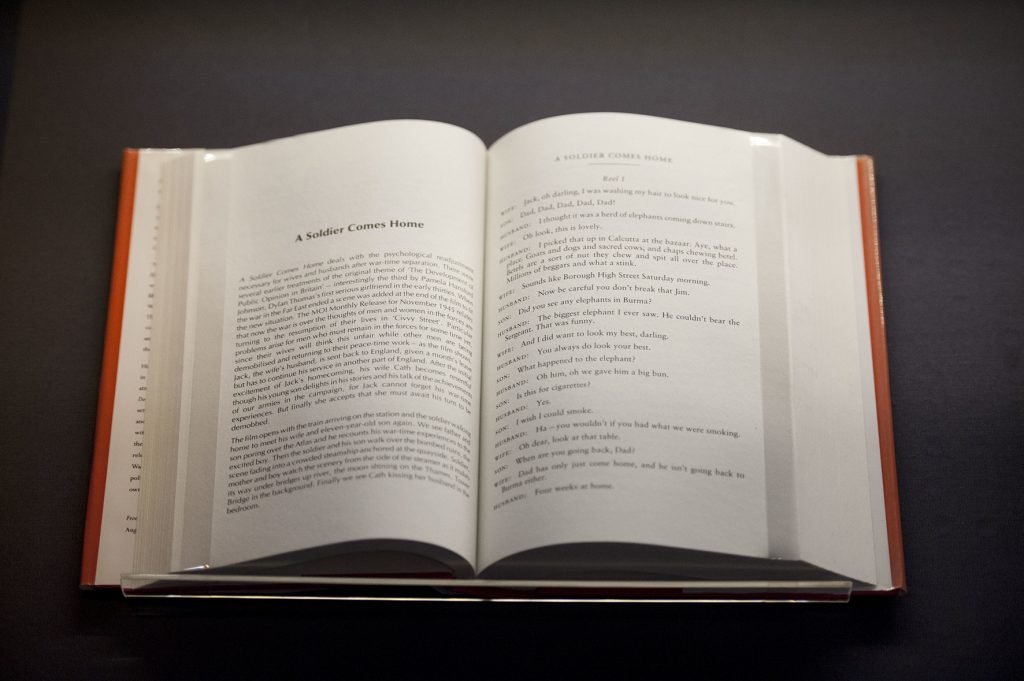‘A Soldier Comes Home’

Dylan Thomas spent much of World War Two writing filmscripts for short documentary style films broadcast to inform the public and boost morale. They included ‘A City Re-Born’, which looks at the destruction of Coventry and plans for its post-war rebuilding, and films such as ‘Wales – Green Mountain, Black Mountain’ which examined life in war time in various parts of the UK.
Dylan was employed as a scriptwriter by Strand Films from late 1941 and was initially paid £8 a week, before eventually earning £20 per week plus expenses. Strand Films was a under contract with the Ministry of Information, producing 75 films in 1942 alone. Dylan worked as a director, producer, complier, deviser and voice-over narrator in the commentary as well as writing scripts. His wife Caitlin said that he ‘never took the job lightly; he was keenly interested in the new techniques that he was learning, and he was hoping to move on to other forms of film writing when … the film industry revived after the war … Dylan was as conscientious about his writing for Donald Taylor and later for Sidney Box at Gainsborough Films as he was for his other literary work.’
‘A Soldier Comes Home’ was the last in this series, and the short film is a sensitive exploration of the psychological readjustments necessary for families after they had been separated during the war. These experiences are played out in the characters of Jack and Cath, and their son Jim. Jack has a month’s leave and finds it difficult not to talk about his experiences in Burma and colleagues in the army, especially as his excited son often prompts him for stories about it. Cath finds it hard: ‘I can’t even have you to myself when you are home. Not even for a few minutes. You are always talking about your pals out there and what is happening to them. We have so little time.’

Dylan’s script also highlights the destruction on the home front; when Jack and Jim go for a walk, Jim says ‘ Did I show you where the flying bomb came down Dad? There is one just over there, and you know that picture of Grandad when he was a little boy, the big picture in the flash frame with sea shells all round it, it fell on the floor when the bomb came and didn’t break either.’ His father replies ‘we were very far away. We had no idea it was as bad as this.’
Typically for Dylan, we get a lovely sense of the characters in a short space of time, as he changes the pace and tone of his writing and injects some humour in an exchange between Jack and Cath:
WIFE: Oh you’ll get plenty of your old beer tonight. Mother will be there, Jane and Peter.
HUSBAND: Looking forward to seeing your mother in the Railway Arms with a pint of beer and a clay pipe.
WIFE: You know she only drinks stout, and she doesn’t smoke either.
The film ends with a kind of resolution as Cath accepts her husband must return to the army to finish his deployment even though the war is over, and he shows how much he appreciates the work and effort she puts in at home.
This post is also available in: Welsh


